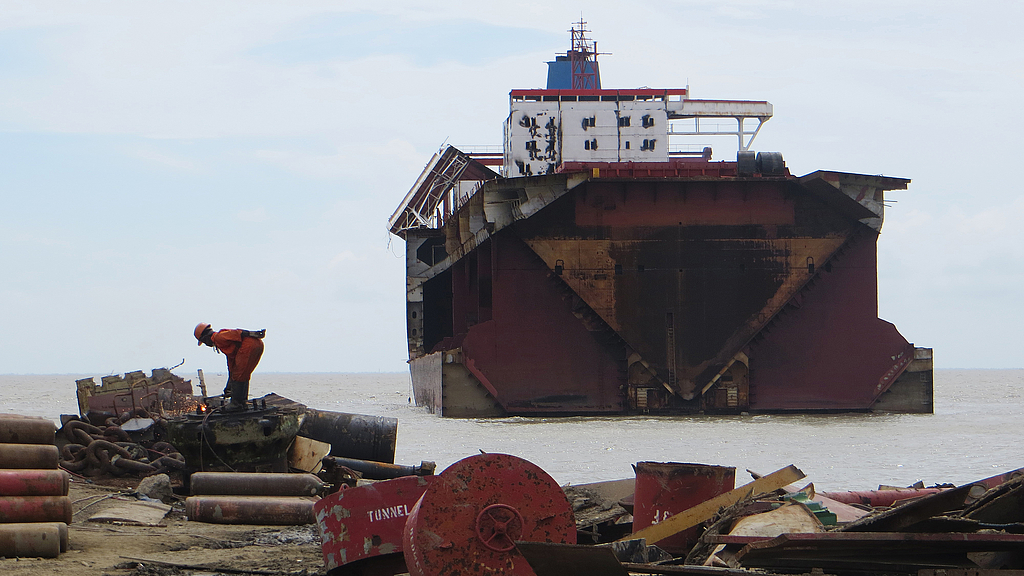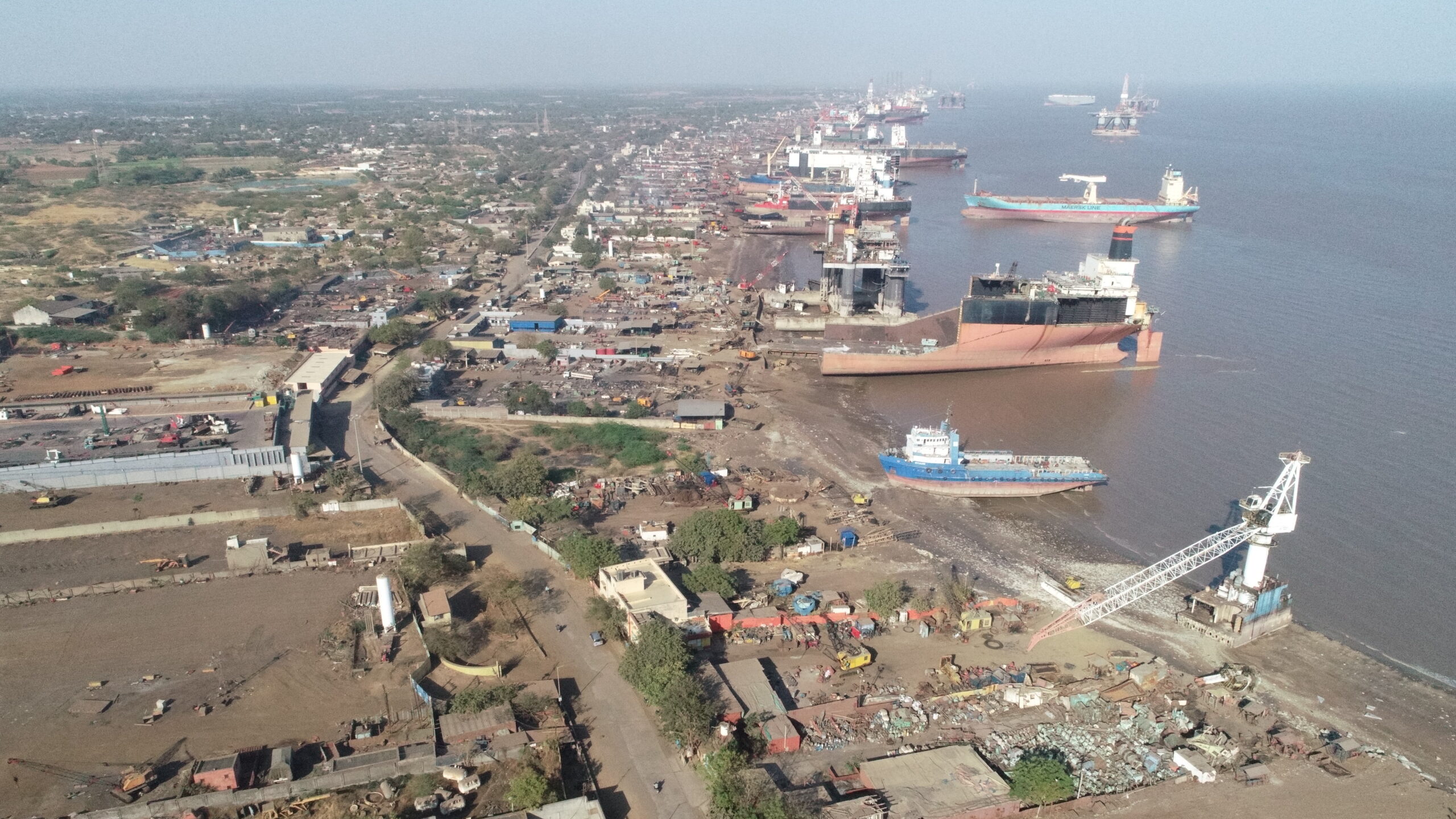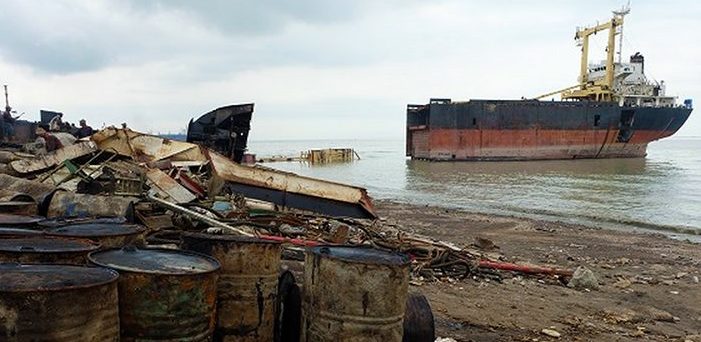Germany Opens Door to Domestic Ship Recycling: Ending Reliance on Southeast Asian Yards
For decades, the final journey of most ships flying European flags ended not on home soil, but thousands of miles away in the beaches of Bangladesh, India, or Pakistan, where workers, often without protective gear, dismantled massive vessels under hazardous conditions. That cycle is now facing a new alternative in Germany. In a landmark development, ships can now be dismantled and recycled at a facility in Emden, Lower Saxony, after authorities granted the necessary permits earlier this year.

The approval marks a turning point for Europe’s largest economy, which until now had no domestic ship recycling capacity on the scale of its industrial needs. The project is spearheaded by EWD Benli Recycling, a subsidiary of Emden Werft und Dock (EWD), an established shipyard in the Port of Emden. By securing the license from the Oldenburg State Trade Supervisory Office, the facility has officially gained permission to handle an entire range of dismantling projects, from seagoing vessels and passenger ferries to inland waterway craft, offshore wind turbines, and even industrial plants.
Björn Sommer, the Managing Director of EWD Benli Recycling, described the initiative as an all-encompassing service. “We will dismantle everything that enters the Port of Emden through the sea lock,” Sommer said. His statement underlined the ambition of the project: to position Emden as a European hub where obsolete ships and maritime infrastructure can be safely, sustainably, and efficiently taken apart without needing to send them on lengthy voyages to the scrapyards of Asia.
The announcement has been warmly welcomed by regional policymakers, particularly in Lower Saxony, where Emden is located. Christian Meyer, the Environment Minister of the state, praised the move as both an economic and ecological milestone. He highlighted that the Port of Emden can now plan with a long-term perspective, building a future where dismantling and recycling activities contribute not only to employment but also to environmental stewardship. Meyer underscored the contrast with current practices, in which aging ships were transported to Asia and left to decay under perilous circumstances. These conditions, he emphasized, often resulted in environmental disasters and posed severe risks to the health of local communities living near the shipbreaking yards.
Germany’s entry into ship recycling comes at a time when international regulations have tightened considerably. The Hong Kong International Convention for the Safe and Environmentally Sound Recycling of Ships, adopted in 2009, is finally nearing full enforcement after years of slow ratification. The convention sets binding requirements for safe recycling practices and the treatment of hazardous materials, placing responsibility on both shipowners and recycling yards to meet high environmental and occupational safety standards. While many Southeast Asian yards continue to face criticism for failing to comply with these norms, European countries are increasingly under pressure to develop their own compliant facilities.
The Port of Emden’s new capacity aligns with longstanding calls from environmental groups and industry associations within Germany. For years, Bremen and Lower Saxony have been vocal advocates for domestic ship recycling and raw material extraction, lobbying through the Conference of Environment Ministers to end reliance on distant nations where dismantling often takes place with little regard for safety or sustainability. Their advocacy reflects both environmental concerns and economic opportunities. Recycling vessels in Germany not only reduces the carbon footprint of transporting them abroad but also allows valuable raw materials, including steel, copper, and other metals, to be reclaimed and fed back into domestic industries.
The development also follows recent appeals from the Association for Shipbuilding and Marine Engineering, which represents the maritime industry in Germany. Earlier in 2024, the association urged the federal government to review and reduce the legal hurdles facing companies that want to engage in sustainable ship recycling. While recycling activities are regulated at both the European and international level, German companies have historically faced particularly complex challenges in obtaining licenses. The association argued that bureaucratic obstacles had left the nation unable to match its maritime capacity with corresponding end-of-life infrastructure. “These issues should be reviewed and reduced to a reasonable level,” the group stated, stressing that a balance must be found between stringent environmental protection and the need to establish a competitive recycling sector.
Germany’s ship recycling approval in Emden signals that some of these hurdles are finally being overcome. The license granted by GAA Oldenburg covers all stages of the process, including depollution, dismantling, and the safe handling of pollutants. Hazardous materials such as asbestos, oil residues, and heavy metals are among the greatest concerns in ship recycling, as mishandling can contaminate soil, waterways, and ecosystems. By bringing the entire process under regulated domestic oversight, authorities hope to prevent the kinds of disasters that have plagued dismantling yards abroad.
The implications extend far beyond Emden. Germany is home to one of the largest merchant fleets in Europe and has a sizable inland shipping sector that relies heavily on the Rhine, Elbe, and other waterways. Until now, when these vessels reached the end of their service life, owners were forced to seek recycling options abroad, often encountering ethical and regulatory dilemmas. With a facility now available at home, shipowners will have an alternative that complies with European Union regulations and aligns with growing corporate commitments to sustainability.
Moreover, the Port of Emden’s strategic location strengthens its prospects as a recycling hub. Situated on the North Sea, Emden is already an important site for offshore wind energy projects, vehicle exports, and heavy industry. The addition of ship recycling complements existing infrastructure and creates synergies, particularly in handling offshore wind turbines, which are themselves massive steel structures that require careful dismantling once decommissioned. Combining these sectors may offer a model for integrating circular economy principles into Germany’s broader industrial landscape.
Still, the road ahead is not without challenges. Building a viable business around ship recycling in Germany will require overcoming cost differentials. Recycling ships in Southeast Asia has remained attractive for many owners because of lower labor costs and fewer regulatory expenses. Domestic recycling in Germany, while safer and more sustainable, will inevitably come at a higher price. The success of the Emden facility will therefore depend on whether shipowners, governments, and possibly the European Union can create incentives, subsidies, or regulatory frameworks that level the playing field. Without such support, some owners may continue to send their vessels to Asia, regardless of environmental consequences.
Nonetheless, optimism prevails among advocates of the project. Minister Meyer expressed confidence that the facility represents not just a local investment but a shift in Europe’s maritime strategy. “Ships can now be recycled in Germany, where they belong, instead of being shipped away to distant nations,” he said. His words encapsulate the broader narrative driving the initiative: a determination to reclaim responsibility for Europe’s maritime legacy and ensure that the environmental cost of shipping does not fall on vulnerable communities half a world away.
The Emden project thus stands at the crossroads of industry, politics, and environmentalism. It addresses long-standing concerns about hazardous shipbreaking practices in Asia while responding to Germany’s need for greater self-sufficiency in raw materials and waste management. It also positions the Port of Emden as a potential leader in sustainable maritime practices, bridging the gap between regulatory ideals and practical implementation.
As the facility begins operations, much will depend on how the maritime industry, government policymakers, and international bodies collaborate to ensure its long-term success. For now, however, Germany has taken a decisive step toward reshaping the end-of-life cycle of its ships. What once seemed an inevitable voyage to faraway shores may soon become a short passage to Emden, where vessels can be dismantled safely, responsibly, and in a way that secures both jobs and the environment for future generations.
Author: shipping inbox
shipping and maritime related web portal









